Its historical significance to one side, how you respond to Best of Enemies — the documentary on the 1968 “debates” between Gore Vidal and William F. Buckley Jr. — will depend on how you take to either of the two men. Having grown up seeing them (and in Buckley’s case, seeing parodies of him), I’m used to them, but someone who isn’t may well have a different response. They speak in a style of affected elegance that has long been out of fashion. As a Columbia University linguist puts it, “These days anybody who spoke like those two men — in public — would be seen to be heartless.” And Frank Rich of New York magazine notes, “In fact they’re supposed to be what America nationally despises. They’re intellectuals. They sound like elites, but people warmed to them.” But 50 years ago — when people weren’t automatically suspicious of anyone who didn’t sound like someone you could have a beer with — it wasn’t immediately off-putting.
Today the landscape probably has no room for the supercilious, suave, sang-froid of Vidal, and possibly even less for the equally pompous, but more twitchy — with his reptilian tongue-flicking and nervous pen-jabbing — and more volatile Buckley. Their sophisticated affectations have long been displaced by the raucous shouting of the more viewer-friendly “just folks” posturings of their TV pundit successors — successors they ironically made possible. In 1968, their series of “debates” during the Republican and Democratic conventions were a whole new kind of political theater. Calling them debates is itself debatable, since these are really escalating cat fights by two larger-than-life self-caricatures who loathed each other and detested each other’s vision of America.
The film is quick to point out that the whole idea was born of desperation at ABC. It’s probably hard to understand what an under-financed also-ran ABC was in 1968. The network was something of a joke and their status was precarious. While big guns CBS and NBC were planning complete and comprehensive coverage of the conventions (in color, no less), and that was something ABC couldn’t afford. The solution was to show only the essentials of the conventions — and to offer something different by having Vidal and Buckley discuss them. The idea, or some variant of it, is standard now. It was revolutionary then, and it was not without its critics, who felt it detracted from the proceedings. The objections, of course, couldn’t stand up to the power of the ratings.
Looked at today, it’s easy to see the appeal of the battle of wits, but it’s also impossible not to notice how little of it actually relates to the convention. It’s all about the clash of two giant egos, both of which were capable of being extremely vicious. There’s soon no doubt that Vidal — having already measured his opponent — was out for blood. But more, he was determined to cause Buckley to melt-down on national TV. His stated intention after the fact had been to expose Buckley publicly — to show the world Buckley the way Vidal saw him. It goes without saying that Vidal wanted to accomplish this without losing his own composure. Whether or not he did either of these things, what he clearly did not do was destroy or even negatively impact Buckley’s popularity. Then again, Buckley did no damage to Vidal’s clout. If anything they both gained from the massive exposure.
The significance of Best of Enemies itself lies less in its undeniable entertainment value — and the fact that it’s smart enough not to overstay its welcome — than how it captures that moment in time when the now ubiquitous TV news pundit came into being. That it has now been twisted almost entirely out of recognition doesn’t change that it started here — and it was, from the very onset, more about entertainment and personalities than news. Rated R for some sexual content/nudity and language.
Playing at Carolina Cinemas.



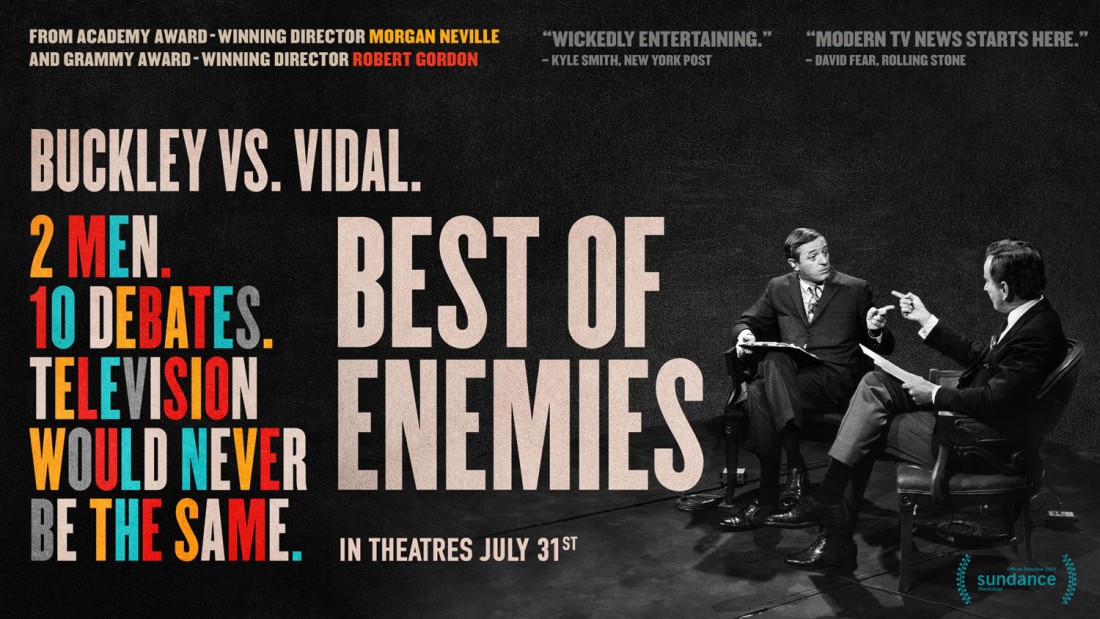
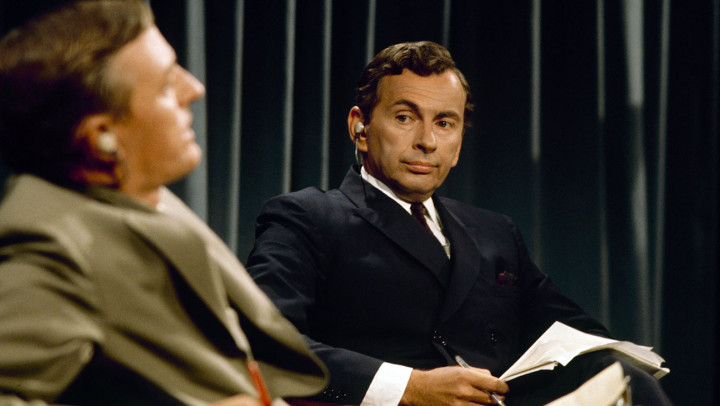

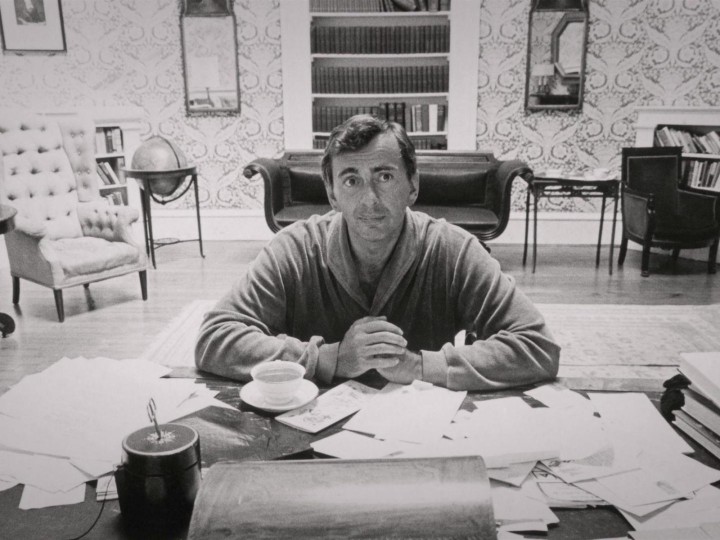
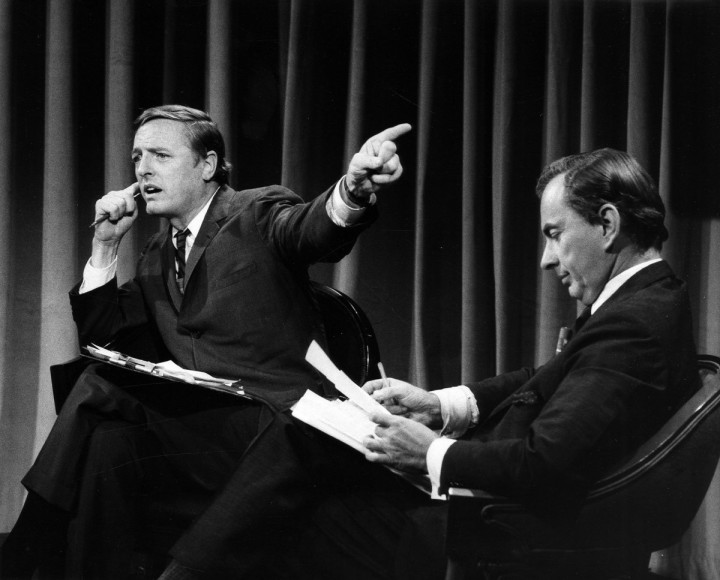
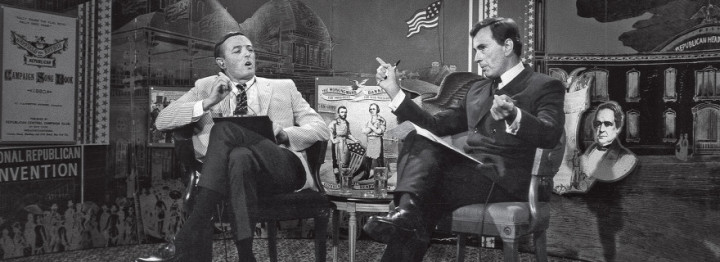
Rejected title – CROSSFIRE BEGINS
With good reason.
Strong review, Mr. Hanke. You nailed it, except for one thing. It was clear to me in re-watching this little orgy of person nastiness that the two men had different agendas going in. Buckley was well-trained in debate, relished the give-and-take of genuine engagement with an intellectually challenging adversary of the left, and wanted to discuss and debate the convention, candidates, etc. Vidal detested Buckley, and his primary aim going in was to belittle and annoy and perhaps humiliate him him. Buckley was later horrified at what he (Buckley) called Vidal and worried about it the rest of his life. I have never read that Vidal regretted calling Buckley a “Nazi”. Indeed, he had planned to, while Buckley’s astonishing words were said in a spontaneous rage at what Vidal had called him publicly. A personal footnote: I remember how often this vile word (Nazi) was regurgitated by students and professors and pundits of the Hard Left in the 60’s, having lived through all this. Nixon was the most common target, but there were others such as Haldemann and other Nixon Cronies. It became, in some quarters, an accepted hyperbolic synonym for The extreme Right and denizens thereof. Buckley’s jaw trembled in rage and disgust. Mine would have also (It is amazing to me how easily Progressive types resort to name-calling in a disagreement. Far Right types do as well. A pox on both of their pigpens.)
Bob Voorhees